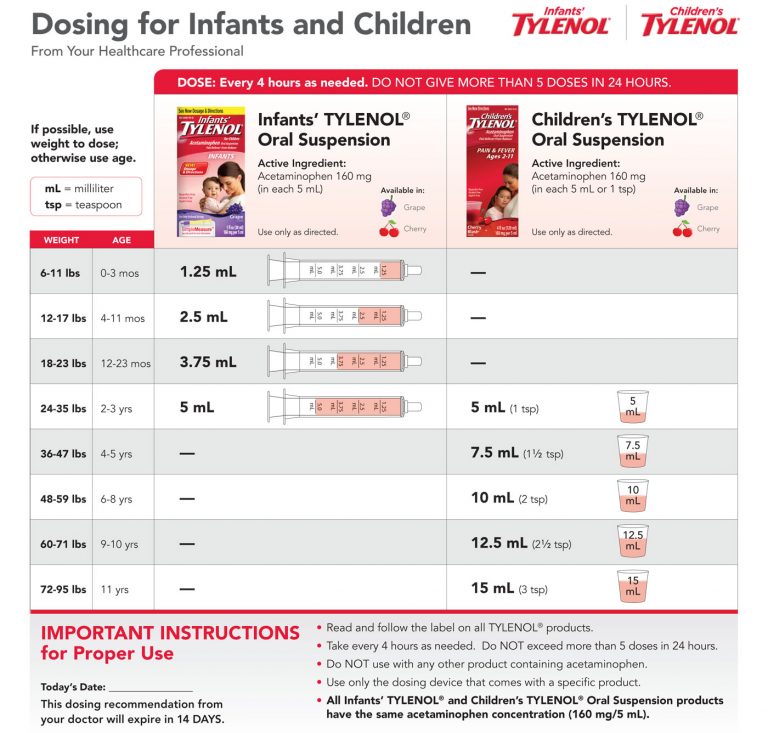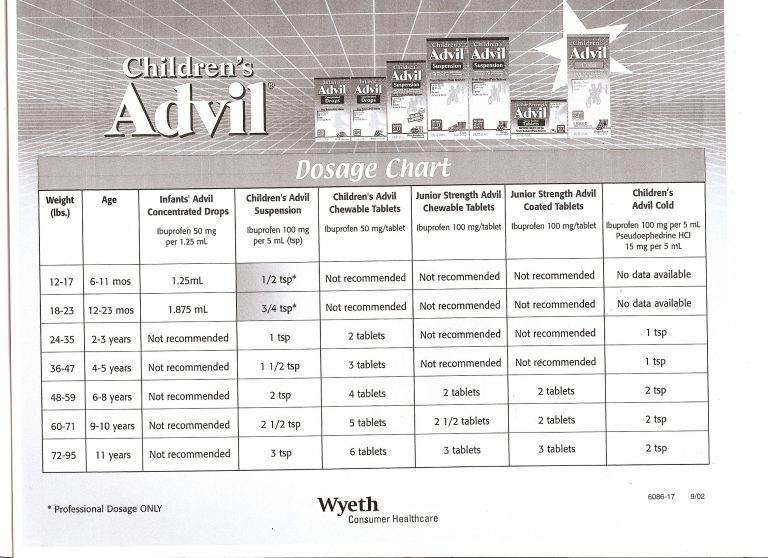Dosage Information
Below are dose recommendations for several common over-the-counter products. (click on charts to enlarge) All doses are determined by weight, not age. Remember to check the label for the type of medicine you are giving for the concentration (strength), in order to use the chart correctly.
If you have any questions as to the correct dosage, don’t hesitate to give us a call. Make sure you do not combine medicines that contain the same components (Tylenol & Feverall, for example, both have acetaminophen). This is easiest if you minimize products with multiple active ingredients.
Do not give medicines to infants less than 2 months without speaking to a doctor.
Diphenhydramine is available without a prescription to use for hives and for itching with certain rashes. It can be given every 6 to 8 hours as needed. If your child is experiencing difficulty breathing, wheezing, tongue swelling, lip tingling, vomiting, or other signs of a serious allergic reaction, you should call us immediately. Do not administer diphenhydramine to an infant without speaking to your doctor first.
We do not recommend the use of decongestants or cough suppressants in children under two years. It is unclear whether these products have any true benefit and recent studies show that there may be significant risks associated with these products in young children. If you chose to use these products in older children, please visit the manufacture’s websites for dosing information and for more information on their products. Some common brands include: Pediacare, Triaminic, Dimetapp, Robitussin, and Sudafed.
Children (through age 21 years) should not take aspirin if they have chickenpox or influenza (any cold, cough, or sore throat symptoms). This recommendation is based on several studies that have linked aspirin to Reye’s syndrome, a severe encephalitis-like illness. We have stopped using aspirin for fevers associated with any illness.




